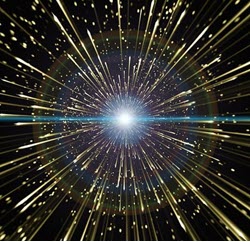The article begins by narrating the origins of Godzilla, tracing back to the big bang that created the universe itself. This portrayal of Godzilla as a cosmic entity ties in with the grandeur and awe-inspiring nature of the monster, elevating its status from mere movie monster to a force of nature. The concept of Godzilla being a product of the primordial chaos of the universe adds a mythic quality to the creature, making its destructive power seem more profound and elemental.
Furthermore, the article delves into the cultural significance of Godzilla, depicting the monster as a symbol of Japan’s collective fears and traumas in the aftermath of World War II. Godzilla’s destructive rampage through Tokyo can be interpreted as a manifestation of the lingering trauma and anxieties stemming from the bombings of Hiroshima and Nagasaki. By embodying these fears in the form of a giant, city-destroying monster, Godzilla becomes a potent symbol of the destructive capabilities of humanity and the need for caution in the use of power.
The narrative then shifts to discuss the evolution of Godzilla in popular culture, highlighting the various iterations and reimaginings of the character over the decades. From the campy, rubber-suit monsters of the Showa era to the more serious and somber portrayals in the Heisei and Millennium series, Godzilla has undergone numerous transformations that reflect the changing cultural and social contexts of each era. This adaptability and enduring popularity speak to the universal appeal of Godzilla as a character that can be reinterpreted and reimagined for each new generation of audiences.
Lastly, the article touches upon Godzilla’s crossover appeal, both in terms of its numerous encounters with other giant monsters in the Toho universe and its encounters with Western pop culture icons such as King Kong. These crossover events serve to further expand Godzilla’s mythos and cement its status as a pop culture icon with a lasting legacy. The intertwining of Godzilla with other iconic monsters and characters creates a sense of interconnectedness and shared history in the world of kaiju films, enriching the overall tapestry of these larger-than-life stories.
In conclusion, Godzilla’s origins as a cosmic entity born from the chaos of the universe, its cultural significance as a symbol of Japan’s post-war trauma, its evolution through various iterations, and its crossover appeal all contribute to the enduring legacy of the King of the Monsters. Godzilla’s status as a global pop culture icon is a testament to its timeless appeal and ability to resonate with audiences across different eras and cultures. Whether seen as a destructive force of nature or a symbol of resilience and perseverance, Godzilla continues to captivate audiences and inspire awe with its larger-than-life presence and enduring legacy.

